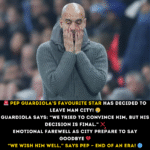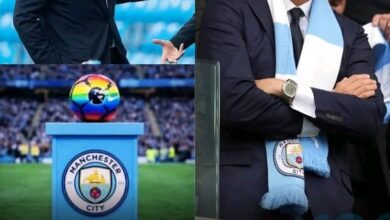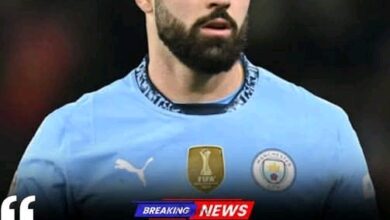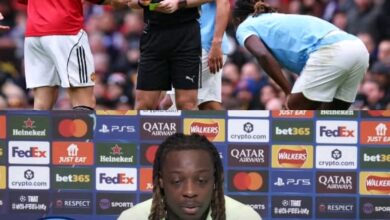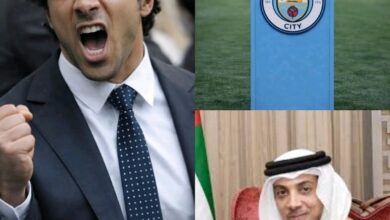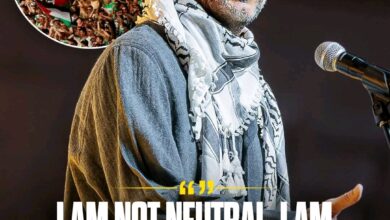Man City must immediately regret deadline day transfer decision amid latest John Stones blow
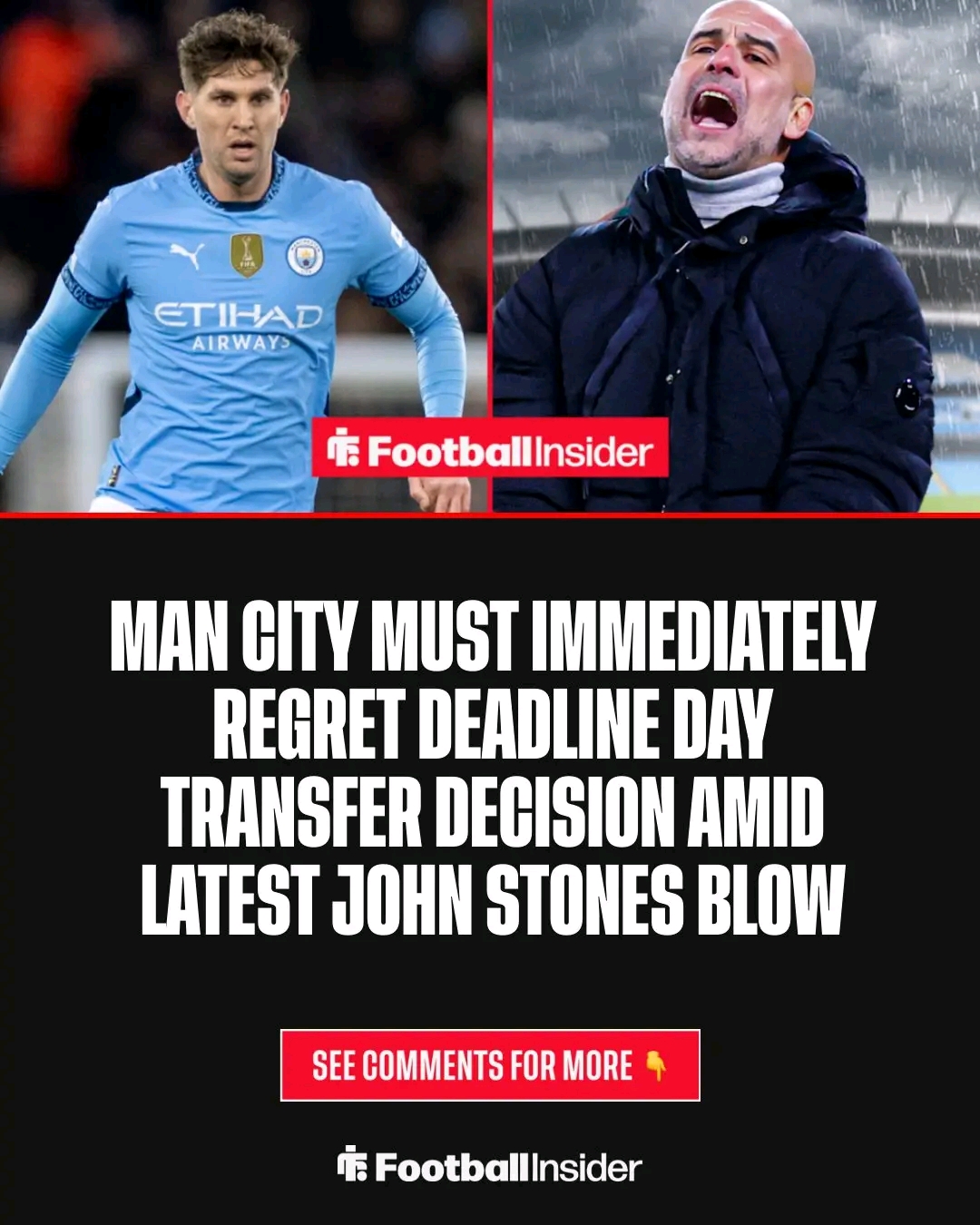
Manchester City are a club that built their dynasty on perfection. For years under Pep Guardiola, every decision seemed flawless, every move was calculated, every signing had a purpose, and every departure was timed to the very second. They became a machine, a footballing empire that swept through England and Europe, leaving rivals chasing shadows. Four Premier League titles in a row, a Champions League crown, a Club World Cup, countless domestic cups—City had it all. But football has a cruel way of reminding even the greatest that one wrong step can cause cracks in the wall of dominance. And right now, Manchester City may have just made a mistake that could haunt their entire season. That mistake has a name: Manuel Akanji.
On transfer deadline day, when the world of football was at its most chaotic, City made a decision that seemed strange at the time and now looks almost reckless. They let Akanji leave the Etihad, sending him on loan to Inter Milan. At first, many thought Pep had it all under control, as always. After all, this was the manager who built squads so deep that even his bench could challenge for a league title. But fast forward just days after the window shut, and disaster struck. John Stones, one of Pep’s trusted defenders, picked up a muscular problem while on England duty. He was immediately sent home, ruled out of the upcoming World Cup qualifiers against Andorra and Serbia. For most clubs, losing a defender might be a problem, but not a crisis. For City, losing Stones is different. His injury history is worrying. Last season, he managed just 11 Premier League appearances. He was meant to come back stronger, but here we are again—another setback, another reminder of how fragile he has become.
And so the focus turns back to Akanji. City fans are asking the question: why let him go? Why weaken a defence that has already shown cracks? Akanji was not a superstar, not the kind of name that sells shirts worldwide, but he was reliable. He was versatile, calm under pressure, and most importantly, he gave Pep options. With him gone, suddenly City’s defensive depth looks thinner than it has in years. Pep must now turn to Nathan Aké, who himself has had a slow start, and Abdukodir Khusanov, a young signing from Lens still adapting to English football. Aké has only played once this season, in the defeat to Tottenham where City’s defending was exposed badly. Khusanov, while promising, has been shaky at times and nowhere near the level needed to dominate the Premier League.
The irony of it all is brutal. Akanji himself had a conversation with Pep this summer that seemed to lead to his exit. Reports say the Swiss defender wanted clarity on his role, his minutes, his place in the team. Maybe Pep, wanting to keep the harmony in the squad, allowed him to leave. Maybe Pep believed his system and his squad were strong enough without him. But now, just three games into the new season, that decision looks like it could cost City dearly.
The Premier League does not wait for anyone, not even Guardiola. Already, the champions of the past are struggling. City have only three points from their opening three games. They started with a commanding 4-0 win away at Wolves, but then fell apart. Back-to-back defeats to Tottenham and Brighton have left them six points behind Liverpool, who have flown out of the blocks under Arne Slot with three straight wins. This is not the City we know. This is not the relentless machine. Instead, they look vulnerable, uncertain, and tired.
The defensive frailty has played a part in this. Against Tottenham, they conceded twice at home and looked completely unsettled. Against Brighton, the same problems resurfaced. Without Stones at his best, without Akanji as cover, Pep’s options look stretched. The pressure is building, and the timing could not be worse. September brings clashes with Manchester United and Arsenal in the league, plus a Champions League showdown with Napoli. These are not games where you can experiment. These are games where you need warriors, leaders, reliable defenders. Yet Pep has one of his most experienced men, Stones, on the treatment table, and another, Akanji, wearing the black-and-blue stripes of Inter Milan.
The decision to let Akanji go now feels like a gamble Pep did not need to take. City’s summer was supposed to be about evolution, about refreshing the squad after a third-place finish last season ended their streak of four consecutive titles. They brought in Rayan Cherki, a creative French attacker with flair. They signed Gianluigi Donnarumma, the Italian goalkeeper, a bold move to shake up their goalkeeping department. They even added James Trafford, a young English goalkeeper from Burnley, showing an eye for the future. In midfield, they looked for dynamism, in attack they added competition. But in defence, instead of strengthening, they weakened. Kevin De Bruyne’s exit was already a blow for leadership, but Akanji leaving without a proven replacement looks like negligence.
This is the kind of decision that could define a season. Guardiola has built a reputation as a genius, but even geniuses can overthink. Was this one of those moments? Did Pep, so confident in his system, underestimate how quickly injuries can destroy balance? Did he trust too much in the versatility of others like Aké, or the growth of Khusanov? Fans are starting to wonder if the man who never seemed to get things wrong has finally slipped.
Of course, the season is still young. Stones’ injury has been described by England manager Thomas Tuchel as “minor.” Maybe he will be back soon. Maybe Akanji will not be missed as much as people think. Maybe Pep will adjust, as he so often does, moving players into new roles, creating solutions out of thin air. We have seen him play midfielders in defence before, turn full-backs into central playmakers, invent positions nobody had thought of. But the danger is real. City cannot afford to fall too far behind Liverpool, not in a season where the Reds look hungrier than ever. With new signings like Florian Wirtz, Hugo Ekitike, and the headline-grabbing Alexander Isak, Liverpool have sent a message: they want domination, not just competition. City, meanwhile, look like a team still searching for rhythm.
For Pep Guardiola, this is a test not of tactics but of judgment. Every manager is judged by the big calls they make. Letting Akanji leave could be the call that fans and critics point to if this season falls apart. Imagine a scenario where City lose crucial points because of defensive mistakes. Imagine Liverpool pulling away, United and Arsenal keeping pace, and City ending up outside the title race before Christmas. The narrative will be brutal: Pep weakened his own squad. Pep let go of the safety net. Pep made the wrong choice.
It is also about psychology. When a team like City shows weakness, rivals smell blood. Liverpool will believe even more. United, Arsenal, and even Tottenham will take courage. The fear factor that City once had begins to fade. This is how dominance ends—not in one big collapse, but in small cracks that grow larger. Akanji’s departure may seem like one small crack, but with Stones injured, it already looks like a hole.
And for Akanji himself, this could be a strange twist. At Inter, he has a chance to shine, to prove City wrong, to show Pep that he should never have been allowed to leave. We have seen this story before: a player leaving City and thriving elsewhere, becoming a reminder of what might have been. If Inter go far in the Champions League with Akanji playing a big role, the questions will only get louder.
For now, Guardiola has to find answers. He has to steady the ship, protect the squad, and somehow patch up the defence until Stones returns. He has to trust Aké, hope Khusanov grows quickly, and maybe even look at the January transfer window if things do not improve. But the truth is simple: City are weaker today because Akanji is gone. And Pep Guardiola, the master of control, might just regret losing control of this one.
The Premier League is ruthless. There is no space for mistakes, no time for regrets. Every decision matters. Every player counts. For Manchester City, the decision to let Manuel Akanji go could be the decision that decides whether they fight for glory or fight for survival in a title race that looks harder than ever. Guardiola has built a legacy on brilliance. But legacies are fragile. And right now, one wrong move could undo years of perfection.
This is Manchester City’s reality in September 2025: a wounded Stones, a missing Akanji, a team under pressure, and a manager facing questions he has not had to answer for years. The story is only beginning, but already, it feels like the cracks are spreading at the Etihad




